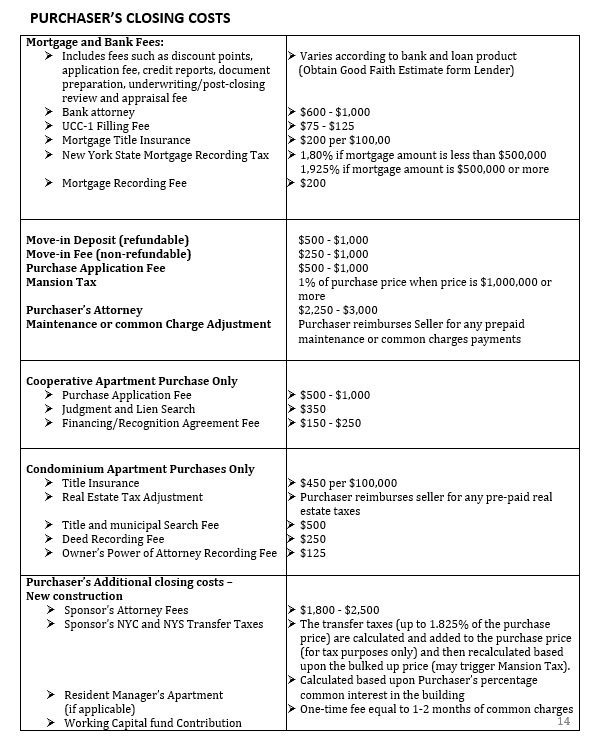Why Invest in New York?
With more than 8.2 million people, New York is undoubtedly the densest city in the United States. The “Big Apple” is one of the largest financial, cultural and business centers in the world. Its influence in the fields of politics, education, entertainment, media, fashion and art makes it undoubtedly one of the major world cities. The city offers an excellent quality of life, household incomes are high and it is full of cultural activities and entertainment.
With more than 200,000 companies identified, the city of New York has one of the most developed and integrated economies in the world. The New York metropolitan area alone hosts 53 companies ranking in “Fortune 500” – more than any other metropolitan area in the United States.
New York is also a hub of international trade. With London and Tokyo, it is one of the three command centers of the global economy. This is the reason why so many international companies have established their headquarters in Manhattan. One employee out of ten in the city’s private sector is working for a foreign company.
The city is a major center in the fields of finance, insurance, real estate, media and art in the United States. Greater New York alone generates almost 10% of the total U.S. GDP. Although the economy is diversified, high-paying jobs in financial services still represent more than 35% of professional income of the city.
The different properties available in New York City
To help you better understand the specific characteristics of this market, our BARNES | WARBURG office remains at your disposal to help you find the type of property that will suit you, at the best location, and at the best price.
The first specificity of the New York real estate market is that it has two main different types of property: condominiums (or condos) and co-ops. There are also ‘Townhouses’?, small buildings of 3 to 5 floors owned by a single owner or divided into apartments.
1 / The Condominums
Being the owner of a condominium (or condo), is similar to being the owner of an apartment in many cities. Upon purchasing, you become the owner of a property. A property deed is transferred to you, then filed in the public registry. You also become the owner of a percentage of the common parts of the building, as well as other owners. The building is usually managed by a managing company appointed by a condo board (similar to a French “syndic”), to which maintenance costs are due every month. In addition, each owner is required to pay a property tax (Real Estate Tax) to the city of New York. However, some condos have a tax abatement program. Do not hesitate to ask us any questions about it.
Condominiums are common in most American cities, but in Manhattan, they only represent 20 to 30% of the total housing stock. Therefore, the majority of properties in New York are Co-Ops.
The advantages of condominiums
- Flexibility: Each owner can rent his property, sell it, or allow family members or friends to enjoy it relatively freely, in accordance with the building rules enacted by the Board. It is quite simple to apply for a mortgage in a U.S. bank to buy this type of property. U.S. residents may often expect a funding of up to 80% of the purchase price at a good rate
- Application: In most cases, a potential buyer must file an application and go through a process called Board application. He must provide information about his finance and his past (credit history, reference letters from employers, previous landlords, bank statement,…). Depending on the building, this process takes more or less time (7-30 days), and requires variable amounts of information depending upon the building. Condos are highly sought after by foreign buyers, but also by New Yorkers themselves who wish to retain some flexibility / liquidity of their assets. Some buyers are also moving towards condos to avoid having to provide too much personal information or documents such as reference letters and extensive financial disclosure required in Co-ops. International buyers applications are often rejected by the Co-Ops because they cannot provide all the required guarantees and are often synonymous of turnover that devalues an address. Condos are often the easiest way to invest on the New York real estate market.
Their disadvantages
- Choice: Because of the preference of foreign investors for this type of property, and the very limited supply of goods available, their prices are often 15 to 20% higher than similar properties governed within a co-op. This is the price to pay to take advantage of the flexibility of this type of investment.
2 / The Co-operative Buildings or Co-ops
Buying a Co-op is still the most common way for long-term ownership in the State of New York (70% to 80% of the apartments in New York are Co-operative buildings). Buying a “co-op” means buying shares in a corporation, which owns the building. The shares of the corporation are held by the people living in the building. This means that all decisions regarding the building must be taken by the “co-op” syndic that affect the community or the property itself (new buyer, hiring, new tenant, resale, work …).
It is up to the cooperative to pay the full amount of the mortgage on the building, property taxes, employees’ salaries and various maintenance costs. In return, the shareholder-owner pays a percentage on total expenses in proportion to its contribution to the cooperative. The amount of this share depends on the size and the floor of the apartment. In Manhattan, prospective purchasers shall provide a 20 to 100% deposit of the purchase price.
“Co-ops” advantages
- For a building of comparable quality, prices are often 15-20% lower than those of condominiums.
- Wider range of choice, Co-ops representing a market share of approximately 75% of all apartments in New York.
- Tax-deductible maintenance fees. Each building is subject to specific taxes. Shareholders may then deduct a portion of the maintenance, which includes the property tax.
Their disadvantages
- Lack of flexibility: Co-op management approves or rejects an application according to its own criteria without even having to account for it. Buyers and tenants are subject to what may look like a detailed interrogation to prove their income levels and their background (including credit background and personal background). The main task of management is to protect the shareholders interests.
- “Co-op” management must give permission prior to every major change for an apartment: buying, selling, leasing, renovation.
Financing in the United States
Obtaining financing as a foreign owner in the United States is possible as long as you pay at least 40% of the purchase price in cash.
If you apply for a loan, some steps are added in the transaction process. A survey is necessary if you buy a house (analysis of the lot and boundaries). The bank will send an appraiser who will estimate the value of the property. Insurance is mandatory and will have to be purchased before signing the contract.
We benefit from a wide network of bank and insurance partners who are accustomed to dealing with loans for international clients and we can put you in contact with them.
Main expenses during the Ownership of the property
1/ Property Tax
This is an annual tax computed based on the value of the property. The tax is between 1.5% and 2% of the assessed value of the property (assessed by a County Appraiser). This value is usually lower than the purchase price of the property (10 to 30% lower).
2/ Common Charges (for a property in a condominium)
These costs can vary and depend on the building or the community in which the property is located. Your agent will let you know the common charges of each condominium you will see during the showings. They are to be confirmed at the time you receive the financial report of the condominium.
A special assessment may be an added charge, in the event of construction or renovation of the building and has to be disclosed by the seller when the offer is made.
3/ Insurance (Hurricane, flood, property)
Different quotes from insurance brokers can be requested to know your insurance costs. Homeowners insurance is often a requisite for closing, especially in the case of a mortgage. Wind and flood policies are not mandatory if the property is not bought with a financing clause.
4/ Accounting
Please feel free to ask us for recommendations of accounting firms and lawyers specialized in real estate acquisitions and fiscal law.

The Owner representation / Property Management
Are you the owner of one or several apartment for rental and you want to make sure to have regular and optimized rental income? When you entrust to BARNES the management of your rental property, you no longer have to worry.
BARNES real estate consultants are rental and property management experts in New York. Our agents are experienced with a true knowledge of the local real estate market and a comprehensive expertise to perform all property management tasks and assist you with every technical, legal, and tax requirements related to your assets.
1/ Why you should entrust BARNES to manage your assets?
a. Your property will benefit from our expertise to rent at the best price
We will estimate the rental value of your property, based on a central file that lists the prices of
properties recently leased and available on the market.
b. Your property will benefit from a comprehensive marketing plan for quick rental
We use the BARNES client database that allows us to advertise your property to an international customer base. We display your property in a variety of media for a fast rental at the best price. Without delay, we carefully study tenant applications to rent in the best conditions.
c. You are free of all administrative and legal constraints
Our American lawyers prepare for you a secured lease in compliance with the latest local regulatory and legal developments. We collect rents, charges, and deposits. We pay the charges and taxes.
We help you to chose professionals for any technical, legal and tax requirement concerning your property (relations with administrations, government agencies, insurance companies,…).
We update you regularly and precisely on our management activities.
2/ Our Services
a. Rental packages
- Accounts opening (electricity, water, internet, phone, cable)
- Tenant profile and history checking.
- Inventory, in/out
- Collection of rents, payment tracking and application of penalties in case of delays
- Troubleshooting and repair organization (leaks, air conditioning, electrical appliances,…)
b. Administrative Package
- Payment: invoices, condominium costs, loan, property tax, insurance…
- Quarterly accounts shipping.
- Availability and efficiency of the application process.
3/ Our team is also at your service for specific needs
- U.S. tax return follow-up together with an accountant
- Any request and additional travel will be charged per hour (moving in and moving out follow-up, furniture storage, furniture purchase and delivery, various work supervision).
